Introduction
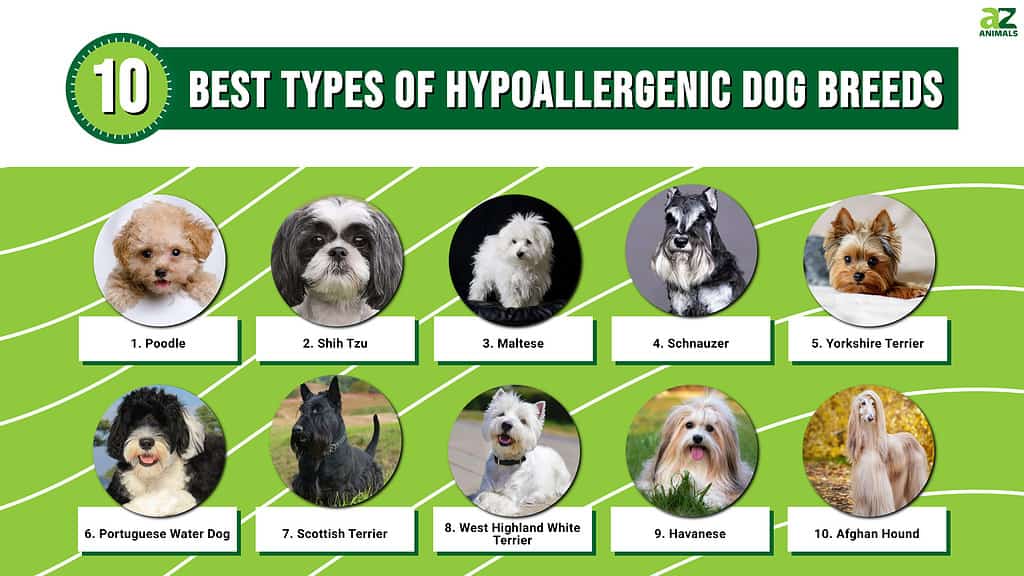
Introduction
Hypoallergenic dog breeds are a popular choice for individuals who suffer from allergies but still want to experience the joys of owning a dog. These breeds have coats that produce fewer allergens, making them more tolerable for allergy sufferers. While no breed is completely hypoallergenic, these dogs have been found to cause fewer allergic reactions than others.
In this article, we will explore several hypoallergenic dog breeds, highlighting their unique qualities and characteristics that make them suitable for individuals with allergies. From Poodles to Bichon Frises, Maltese, Shih Tzus, Yorkshire Terriers, Portuguese Water Dogs, and Schnauzers, we will delve into each breed's overview and their hypoallergenic properties.
If you have allergies but still want to enjoy the companionship and love of a furry friend, keep reading to discover the perfect hypoallergenic dog breed for you.
What are hypoallergenic dog breeds?

Hypoallergenic dog breeds refer to specific breeds that are considered to be less likely to cause allergies in humans. These breeds are sought after by individuals who have allergies or sensitivities to pet dander and are looking for a suitable furry companion.
While no dog breed can be completely hypoallergenic, hypoallergenic breeds are typically characterized by their minimal shedding and low production of allergenic proteins in their saliva and skin. The reduced shedding helps to minimize the amount of allergens, such as dander, in the environment, making them more suitable for allergy sufferers.
Hypoallergenic breeds can provide a solution for individuals who love dogs but are allergic to them. By choosing a hypoallergenic breed, people can enjoy the companionship and joy of owning a dog without the uncomfortable allergy symptoms.
Benefits of owning a hypoallergenic dog

Owning a hypoallergenic dog can bring several benefits to dog lovers who are sensitive or allergic to pet dander. Unlike regular dog breeds, hypoallergenic dogs have a special coat type that produces less allergenic proteins and sheds less dander. This can significantly reduce the risk of allergic reactions and make living with a dog more comfortable.
One of the key benefits of owning a hypoallergenic dog is that they tend to produce fewer allergens. This means that individuals with allergies or asthma are less likely to experience symptoms such as sneezing, coughing, or itchy eyes when interacting with these breeds. Hypoallergenic dogs also tend to shed less, which means less cleaning and vacuuming to remove pet hair.
Furthermore, hypoallergenic dogs often have a low-maintenance coat that requires less grooming compared to other breeds. Their coat may be curly, wavy, or even hair-like instead of fur, which reduces the amount of shedding and the potential for allergens to be spread in the environment. This can be especially beneficial for individuals who are sensitive to pet dander but still want to enjoy the companionship of a dog.
Additionally, hypoallergenic dogs are often recommended for individuals with allergies or asthma because they are less likely to trigger allergic reactions. This can allow allergy sufferers to experience the joy and benefits of owning a dog without the constant discomfort and health issues that may come with it.
In conclusion, owning a hypoallergenic dog can provide numerous benefits for individuals with allergies or respiratory conditions. The reduced allergenic proteins, minimal shedding, and low-maintenance coats of these breeds make them a popular choice for those seeking a canine companion without the associated allergy problems. However, it's important to note that no dog breed is completely hypoallergenic, and individual sensitivities may vary. Therefore, it is always advisable to spend time with the specific breed before bringing one into your home to ensure compatibility with allergies or sensitivities.
Poodles
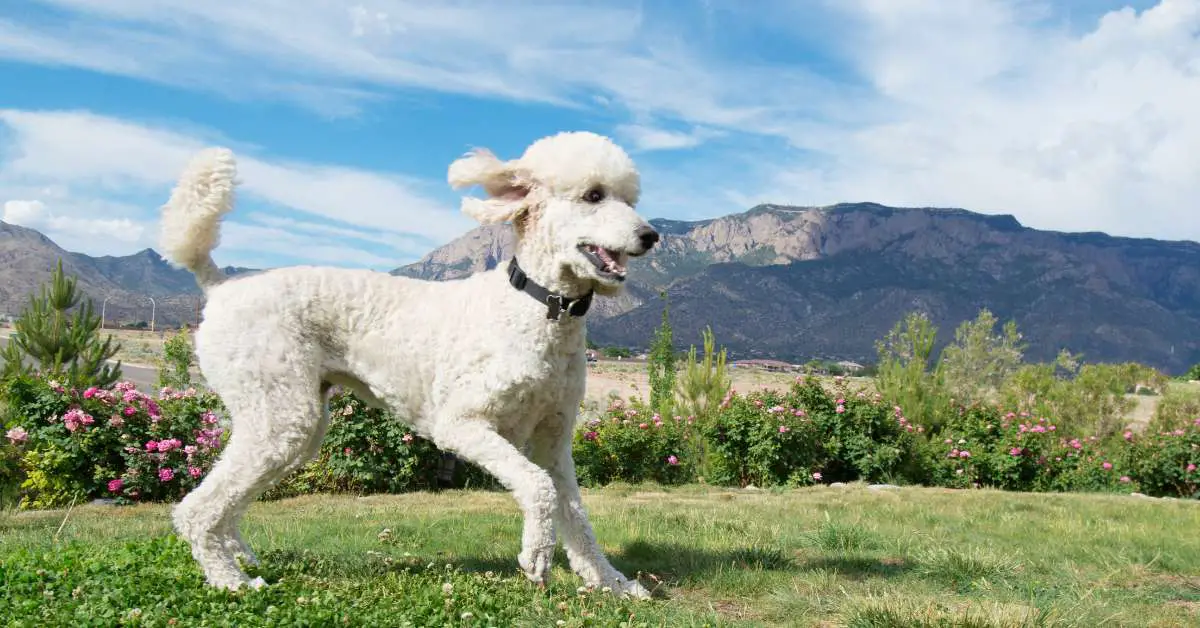
Poodles are renowned for their elegant appearance and versatile nature. These dogs come in three sizes - standard, miniature, and toy - making them a suitable choice for families of all sizes. Poodles have a distinctive curly and dense coat that contributes to their hypoallergenic qualities. Their fur, which is more similar to human hair than traditional dog fur, sheds less and produces fewer allergenic particles. This makes them a great option for individuals with allergies or asthma. Poodles also require regular grooming to maintain their luxurious coats and prevent matting. With their intelligence and trainability, poodles are not only hypoallergenic but also make excellent companions for a variety of lifestyles.
Poodle breed overview

Poodles are a highly recognizable and versatile dog breed that is known for their unique curly coats and elegant appearance. They come in three sizes: standard, miniature, and toy. Poodles are known for their intelligence and trainability, making them highly sought after as both family pets and working dogs.
Originally bred as water retrievers, Poodles have a strong swimming ability and are known for their agility. Their distinctive coat is hypoallergenic, which means they produce fewer allergens and are suitable for people with allergies. Poodles require regular grooming to maintain their iconic curly coats, but they have minimal shedding.
Poodles have a friendly and sociable nature, and they thrive on human companionship. They are typically good with children and other animals, making them excellent family pets. Their high energy levels mean they require regular exercise and mental stimulation to prevent boredom.
Overall, Poodles are an excellent choice for individuals looking for a hypoallergenic and versatile dog breed with intelligence and a friendly disposition.
Poodle coat characteristics and hypoallergenic qualities

Poodles are beloved for their unique coat characteristics, which contribute to their hypoallergenic qualities. The Poodle's coat is dense and curly, consisting of hair instead of fur. This means that the coat does not shed as much as other breeds, reducing the amount of allergens in the environment. Additionally, Poodles have a minimal dander production, which is a common trigger for allergies. Their curly coat also helps to trap the dander close to the skin instead of releasing it into the air. Regular grooming is essential to maintaining their hypoallergenic qualities, as it helps to remove loose hairs and prevent matting. Poodles are an excellent choice for individuals with allergies, as their coat characteristics significantly reduce the potential for allergic reactions.
Bichon Frise
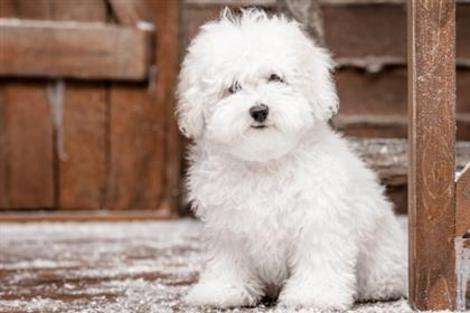
Bichon Frise breed overview:
The Bichon Frise is a small, fluffy dog known for its cheerful and friendly disposition. They are a popular choice amongst dog lovers, especially those looking for a hypoallergenic breed.
Bichon Frises are small in size, weighing between 10-20 pounds, and have a distinctive white, curly coat. They have been bred for generations to minimize shedding and reduce the amount of allergens in their fur.
Bichon Frises are known to have low dander levels, making them a great choice for individuals with allergies. Their hypoallergenic qualities allow allergy sufferers to enjoy the companionship of a dog without the worry of experiencing allergic reactions.
In addition to being hypoallergenic, Bichon Frises are also known for their intelligence, playfulness, and ability to get along with other pets and children. Their small size and lively nature make them a perfect fit for families living in apartments or smaller homes.
If you are in search of a hypoallergenic dog that brings joy and happiness to your life, the Bichon Frise could be the perfect companion for you.
Bichon Frise breed overview
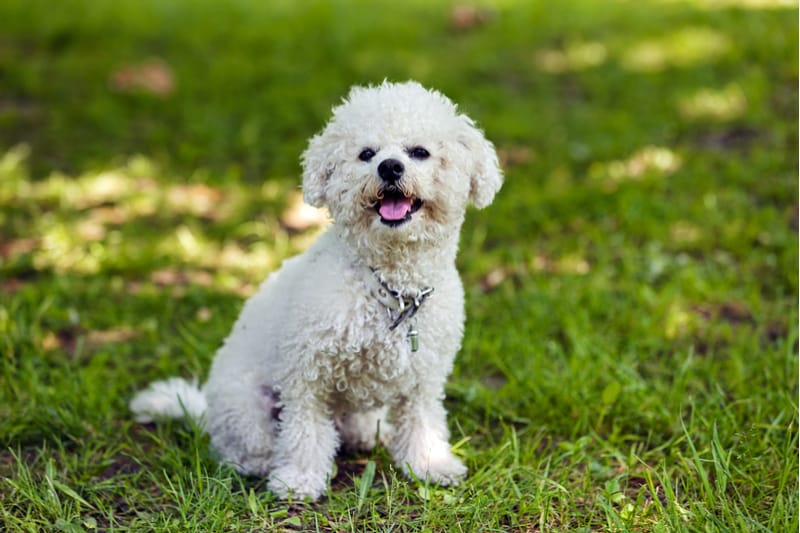
Bichon Frise is a charming and affectionate breed of dog known for its friendly and social nature. Originating from the Mediterranean region, the Bichon Frise is a small dog with a curly, hypoallergenic coat and a playful personality. They have a distinctive rounded head, expressive dark eyes, and a fluffy white coat that requires regular grooming to maintain its signature appearance.
Bichon Frises are known for being excellent companions and family pets due to their cheerful and adaptable nature. They are generally good with children and other animals, making them a great choice for families with multiple pets. This breed is highly intelligent and easy to train, making them suitable for first-time dog owners. They enjoy being the center of attention and thrive on human interaction.
Overall, the Bichon Frise has become a popular choice for individuals and families looking for a hypoallergenic dog breed that is both adorable and friendly.
Bichon Frise coat and hypoallergenic properties
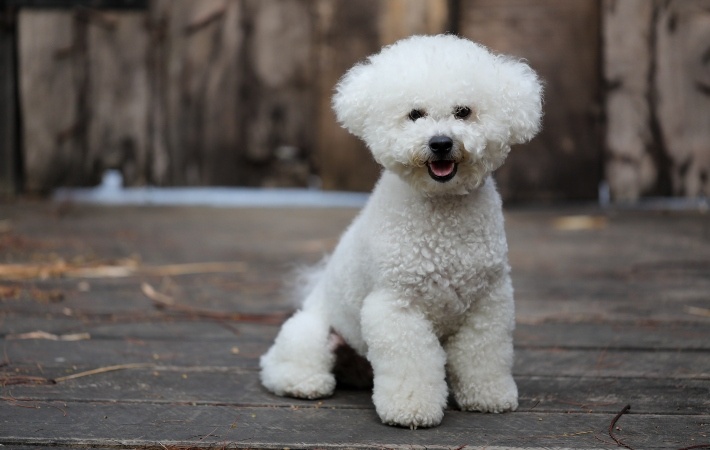
Bichon Frise dogs are known for their distinct coats, which play a role in their hypoallergenic properties. The Bichon Frise has a double coat that consists of a soft and dense undercoat, and a curly and coarse outer coat. This unique combination helps to minimize shedding and reduce the amount of dander, which is the primary trigger for allergies in humans. The curly texture of their fur also helps to trap allergens, preventing them from becoming airborne and limiting their spread throughout the home. Bichon Frises require regular grooming to prevent matting and to maintain their hypoallergenic qualities. Overall, their coat is one of the main reasons why Bichon Frises are considered to be a suitable choice for individuals with allergies.
Maltese

The Maltese is a small and elegant dog breed that is known for its beautiful white coat and glamorous appearance. Despite its luxurious coat, the Maltese is considered to be hypoallergenic and is a popular choice for individuals with allergies.
Maltese dogs have hair instead of fur, which is the main reason why they are hypoallergenic. Unlike dogs with fur, Maltese hair grows continuously and does not shed like other breeds. This means that allergens such as dander, which is often the main cause of allergic reactions, are significantly reduced.
In addition to being hypoallergenic, Maltese dogs are also known for their friendly and affectionate nature. They are devoted companions and are great for individuals or families looking for a small and hypoallergenic dog that loves to be in the company of their owners.
Maltese breed overview
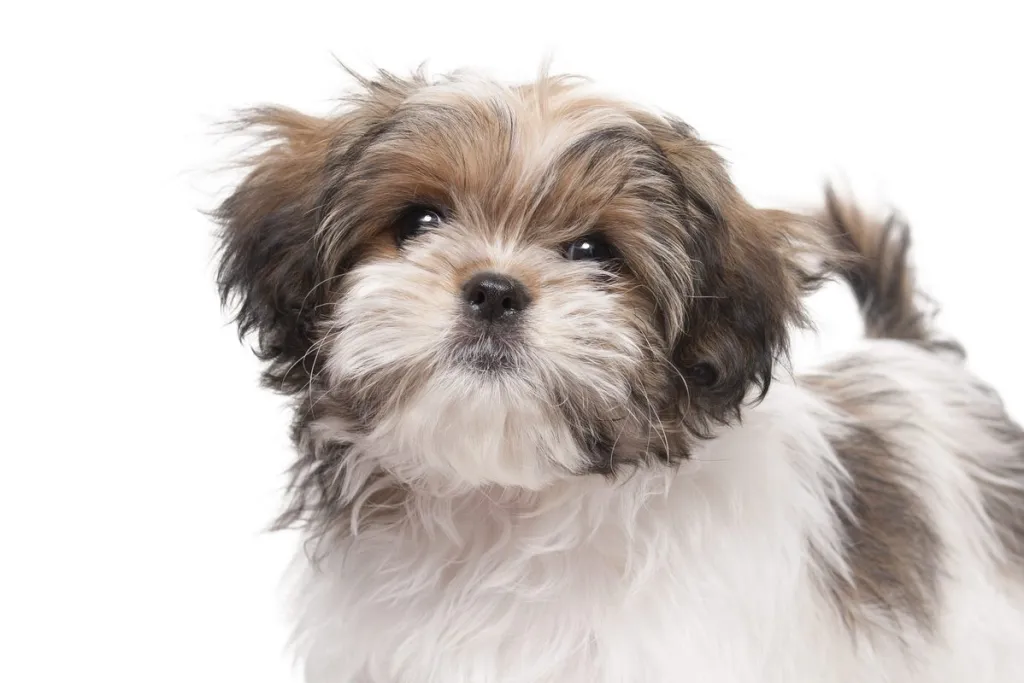
The Maltese breed is known for its exquisite beauty and playful personality. These small dogs are classified as toy breeds and are beloved companions to many dog owners. Maltese dogs have a long history, dating back to ancient times, where they were treasured as royal pets in Mediterranean civilizations.
With their elegant appearance, covered in a luxurious white coat, Maltese dogs are truly eye-catching. They have a distinctive head shape with expressive dark eyes and a black nose. Despite their tiny stature, Maltese dogs possess a bold and confident demeanor.
In terms of temperament, Maltese dogs are known for their affectionate nature. They thrive on human companionship and make excellent family pets. These dogs are gentle, playful, and adaptable, making them suitable for various living situations.
Maltese dogs are also considered hypoallergenic due to their low-shedding coat. However, their long, silky hair requires regular grooming to keep it tangle-free and in optimal condition.
If you are looking for a small, loving, and hypoallergenic dog that will bring joy and companionship to your life, the Maltese breed might be the perfect choice for you.
Hypoallergenic traits of Maltese dogs
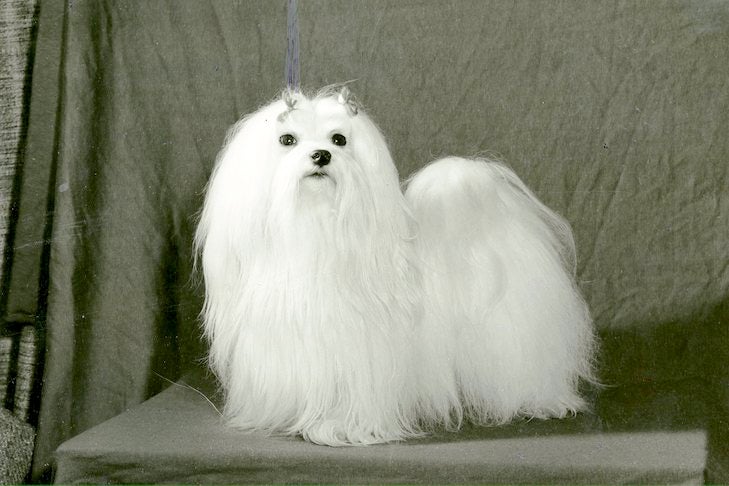
Maltese dogs are known for their hypoallergenic traits, making them a popular choice for individuals with allergies. These small, white, and fluffy dogs have a unique coat that produces minimal dander, which is the main cause of allergic reactions in humans. Their hair-like fur, rather than traditional dog fur, is less likely to shed and release allergens into the environment. This characteristic reduces the likelihood of triggering allergies in people sensitive to pet dander. Additionally, the Maltese breed tends to have fewer oil glands than other dogs, resulting in less skin oil and reduced allergen production. Their hypoallergenic qualities make Maltese dogs a great option for those seeking a furry companion without the added discomfort of allergic reactions.
Shih Tzu
:strip_icc()/breed_profile_shihtzu_1117999_portrait_1174-cb9258db854e434cb04d6be8f39179c0.jpg)
The Shih Tzu breed is known for its charming and affectionate nature. These small dogs are a popular choice for those looking for a hypoallergenic companion. Shih Tzus have a luxurious double coat that requires regular grooming to keep it healthy and tangle-free. Their silky hair does not shed as much as other breeds, making them suitable for individuals with allergies. The minimal shedding of Shih Tzus reduces the amount of dander, the main culprit behind allergic reactions, in the environment. However, it is important to note that no dog breed is completely hypoallergenic, and individuals with severe allergies may still experience some allergic symptoms. Overall, Shih Tzus are a great option for those seeking a hypoallergenic and loving companion.
Shih Tzu breed overview

The Shih Tzu is a small and affectionate breed known for its luxurious coat and signature topknot. Originating from China, the Shih Tzu has a rich history as a companion dog for royalty. Despite their small size, Shih Tzus have a sturdy build and a confident demeanor. They have a distinct face with large, round eyes and a compact muzzle.
Shih Tzus are known for their friendly and outgoing nature, making them excellent family pets. They enjoy socializing and thrive on attention and affection from their owners. Although they are a small breed, Shih Tzus have a lively personality and are often described as "big dogs in a small package."
In terms of exercise, Shih Tzus have moderate energy levels and are generally content with a daily walk and some playtime. They are adaptable to different living situations, including apartments, as long as they receive adequate mental and physical stimulation.
Overall, the Shih Tzu is a delightful and loving breed that brings joy and companionship to their owners.
Hypoallergenic qualities of Shih Tzu dogs
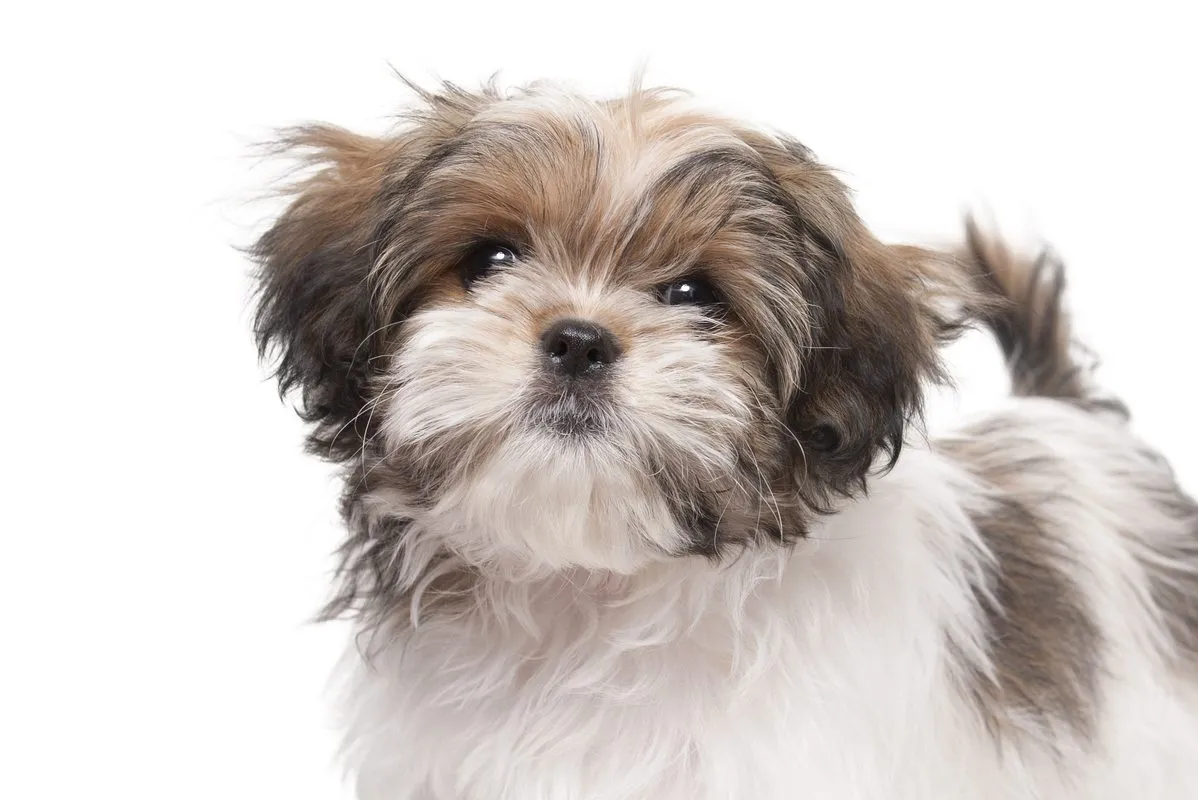
Shih Tzu dogs are known for their hypoallergenic qualities, making them a popular choice for individuals with allergies. Their hypoallergenic nature stems from their unique coat composition. Shih Tzus have hair rather than fur, which means they shed less and produce fewer allergens. This is particularly beneficial for those who are sensitive to pet dander.
In addition, Shih Tzus have a double coat that serves as a natural barrier against allergens. Their outer coat helps repel dirt and allergens, while the dense inner coat provides insulation. Regular grooming is essential to maintain their hypoallergenic qualities, as their long, silky hair can become a trap for allergens if not properly cared for.
With their hypoallergenic attributes, Shih Tzu dogs offer a great option for individuals who want to enjoy the companionship of a dog without suffering from allergies.
Yorkshire Terrier
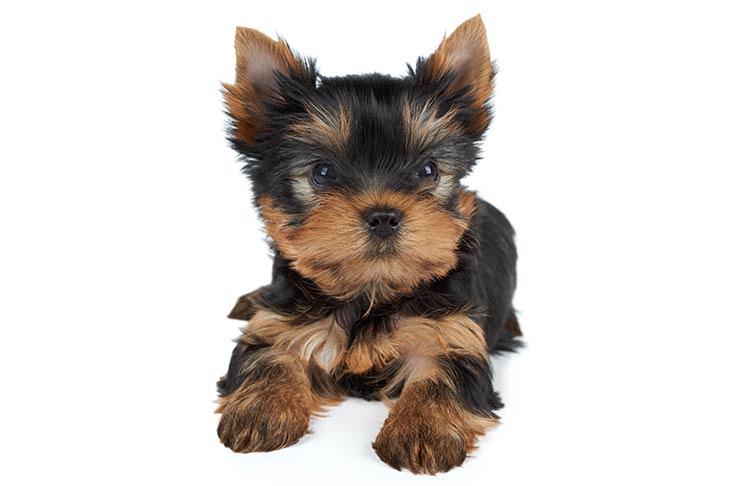
Yorkshire Terriers, also known as Yorkies, are small-sized toy dogs that originated in Yorkshire, England. Despite their small stature, they are known for their lively and confident personalities.
When it comes to allergies, Yorkshire Terriers can be a great option for those with sensitivities. Their hypoallergenic coat, consisting of fine, silky hair, sheds minimally and produces less dander, which is a common allergen. This makes them ideal for individuals who are prone to allergic reactions.
Yorkshire Terriers require regular grooming to keep their coat in optimal condition. Regular brushing and occasional trimming are necessary to prevent matting and keep shedding to a minimum. Additionally, frequent bathing can help reduce allergens.
Overall, Yorkshire Terriers are a popular choice for those seeking a hypoallergenic dog breed due to their charming personalities and low-allergy potential.
Yorkshire Terrier breed overview
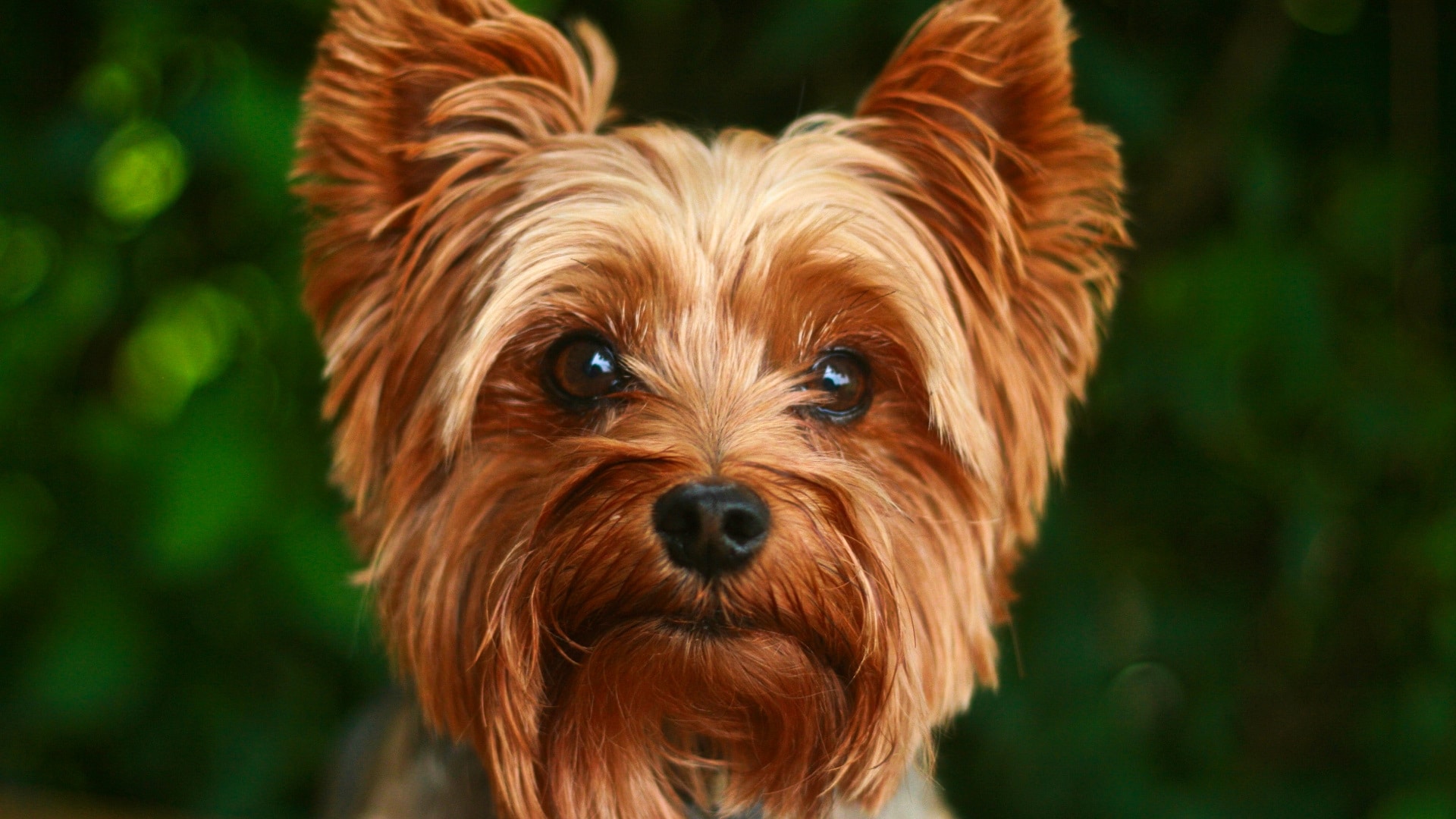
The Yorkshire Terrier, commonly referred to as the Yorkie, is a small dog breed that originated in England. Known for its compact size and elegant appearance, the Yorkshire Terrier is a beloved companion dog.
Despite its small stature, the Yorkshire Terrier has a confident and spirited personality. They are known to be brave, feisty, and full of energy. With their affectionate nature, they thrive on human companionship and make excellent family pets.
In terms of physical characteristics, the Yorkshire Terrier has a long, silky coat that requires regular grooming to keep it looking its best. Their coat is hypoallergenic, meaning it produces fewer allergens compared to other dog breeds, which can be a significant advantage for individuals with allergies.
Overall, the Yorkshire Terrier is a delightful breed that offers both charm and companionship to its owners.
Yorkshire Terrier coat and its hypoallergenic characteristics
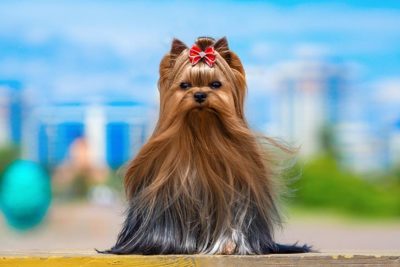
The Yorkshire Terrier, also known as the Yorkie, is a small breed with a luxurious coat that is often admired for its hypoallergenic qualities. This breed's coat consists of fine, silky hairs that closely resemble human hair rather than fur. The Yorkshire Terrier sheds very little, making it a great choice for individuals with allergies or sensitivities to pet dander.
The Yorkie's hypoallergenic coat requires regular grooming to prevent tangling or matting. However, their low-shedding nature means that they produce less dander, reducing the risk of triggering allergic reactions in sensitive individuals. Despite their long, silky locks, Yorkshire Terriers are considered hypoallergenic, as their hair resembles human hair more than typical dog fur.
If you're searching for a small, hypoallergenic breed that offers both style and minimal allergens, the Yorkshire Terrier is an excellent option to consider.
Portuguese Water Dog
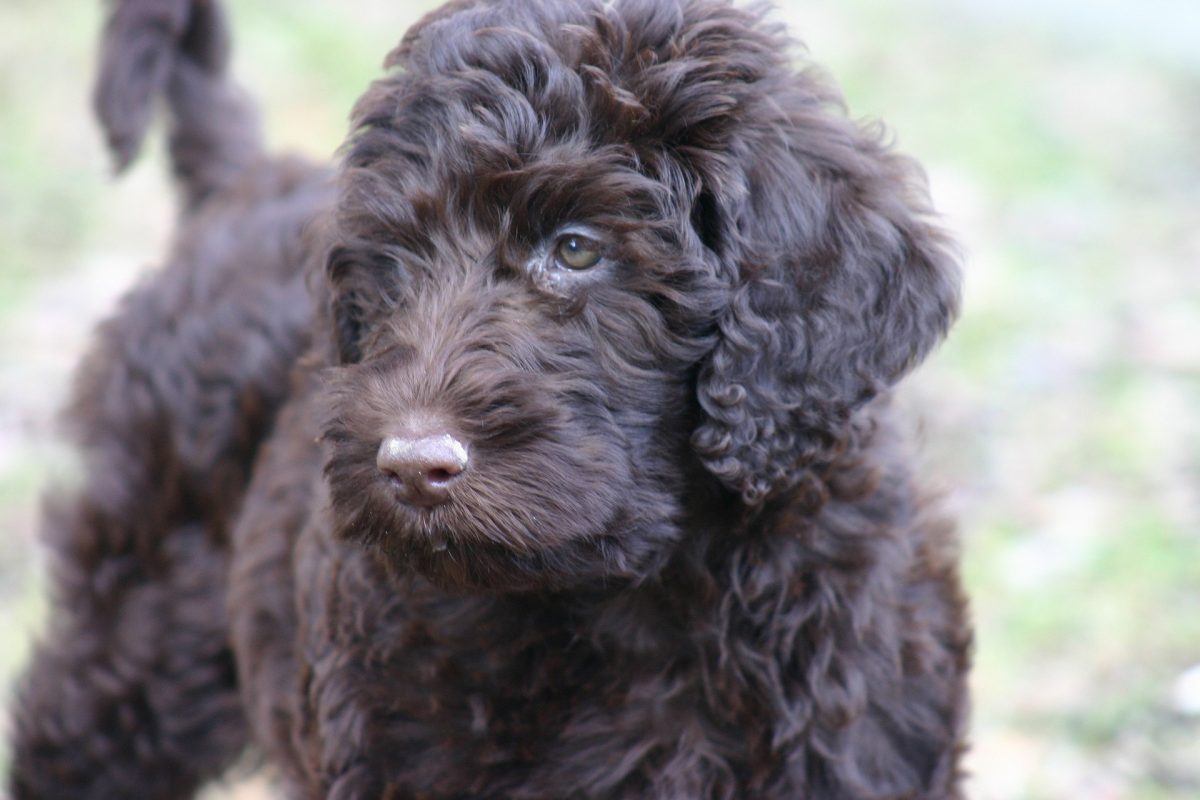
The Portuguese Water Dog is a medium-sized breed known for its intelligence, athleticism, and strong swimming abilities. Originally bred in Portugal to assist fishermen by retrieving nets and objects from the water, these dogs have a thick and curly hypoallergenic coat that helps protect them from the cold ocean waters.
With their non-shedding coats, Portuguese Water Dogs are considered to be hypoallergenic. This means that individuals with allergies may have a reduced reaction when exposed to these dogs. Their hair rather than fur-like coat does not produce as much dander, which is a common allergen. However, regular grooming is necessary to prevent matting and maintain their hypoallergenic qualities.
Portuguese Water Dogs are energetic, friendly, and make excellent companions for active individuals or families. They thrive on mental and physical stimulation and are highly trainable. If you lead an active lifestyle and are looking for a hypoallergenic dog with a fun-loving personality, the Portuguese Water Dog might be the perfect choice for you.
Portuguese Water Dog breed overview
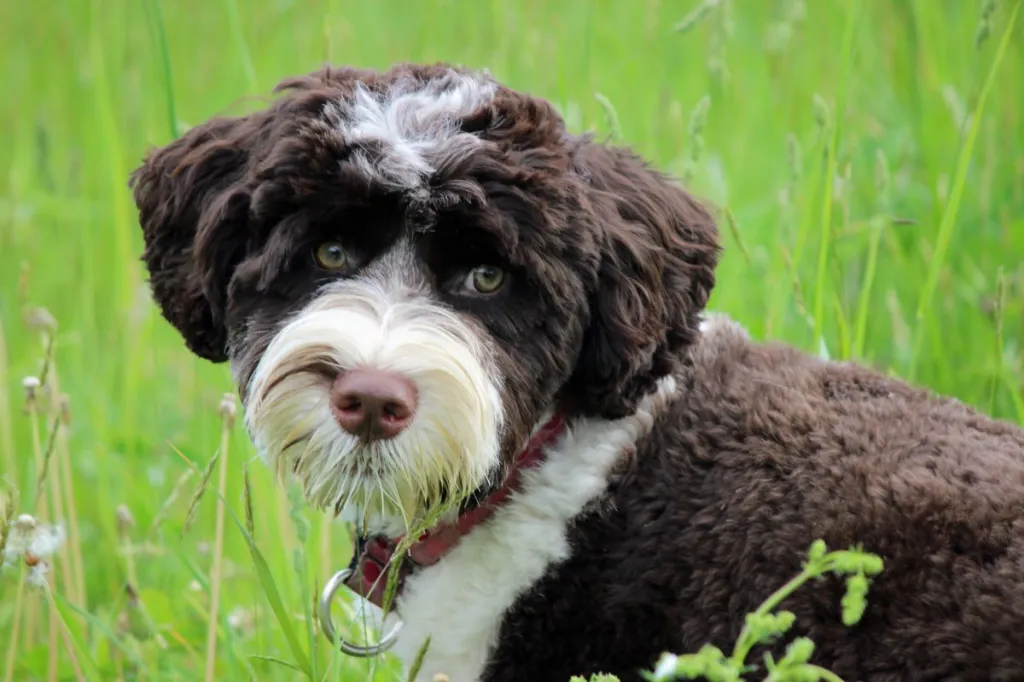
The Portuguese Water Dog, also known as the PWD or Cao de Agua, is a hard-working and intelligent breed that originated in Portugal. Renowned for their exceptional swimming abilities, these dogs were originally bred to assist fishermen by herding fish into nets, retrieving lost tackle, and even delivering messages between boats.
With a medium-sized and well-muscled body, the Portuguese Water Dog possesses a curly or wavy coat that is both dense and waterproof. They come in various colors, including black, brown, white, or a combination of these.
Beyond their exceptional swimming talents, Portuguese Water Dogs are known for their loyal, lively, and affectionate nature. They are highly trainable and enjoy mental and physical challenges. With their hypoallergenic coat, this breed is an excellent choice for individuals who suffer from allergies.
Hypoallergenic attributes of Portuguese Water Dogs

Portuguese Water Dogs are known for their hypoallergenic qualities, making them an ideal choice for individuals with allergies. These dogs have a single-layered, curly or wavy coat that does not shed much, reducing the amount of allergens in the environment. This coat type also minimizes dander, which is a common trigger for allergies. Additionally, Portuguese Water Dogs have hair instead of fur, which means they are less likely to cause allergic reactions.
Furthermore, their coats require regular grooming to prevent matting and tangling, which can trap allergens. Regular bathing and brushing can help remove any potential allergens from their coat, keeping the environment cleaner and allergy-friendly.
It is important to note that while Portuguese Water Dogs are considered hypoallergenic, individual reactions may vary. It is advisable for allergy sufferers to spend some time with the breed before making a commitment to ensure compatibility.
Schnauzer
The Schnauzer is a popular breed known for its distinctive appearance and friendly temperament. Originating in Germany, Schnauzers come in three different sizes: miniature, standard, and giant. With their wiry and dense coat, Schnauzers are often considered hypoallergenic dogs.
The Schnauzer's double-layered coat consists of a soft undercoat and a harsh, wiry outer coat that helps prevent shedding and reduces the amount of dander released into the air. This makes them a great choice for individuals with allergies or sensitivities to pet hair.
In addition to their hypoallergenic qualities, Schnauzers are known for being intelligent, energetic, and loyal. They make excellent family pets and are often chosen for their playful and affectionate nature. Schnauzers also require regular grooming to maintain their coat's hypoallergenic properties and to prevent matting.
With their hypoallergenic coat and friendly personality, Schnauzers are a great option for individuals looking for a hypoallergenic dog breed.
Schnauzer breed overview
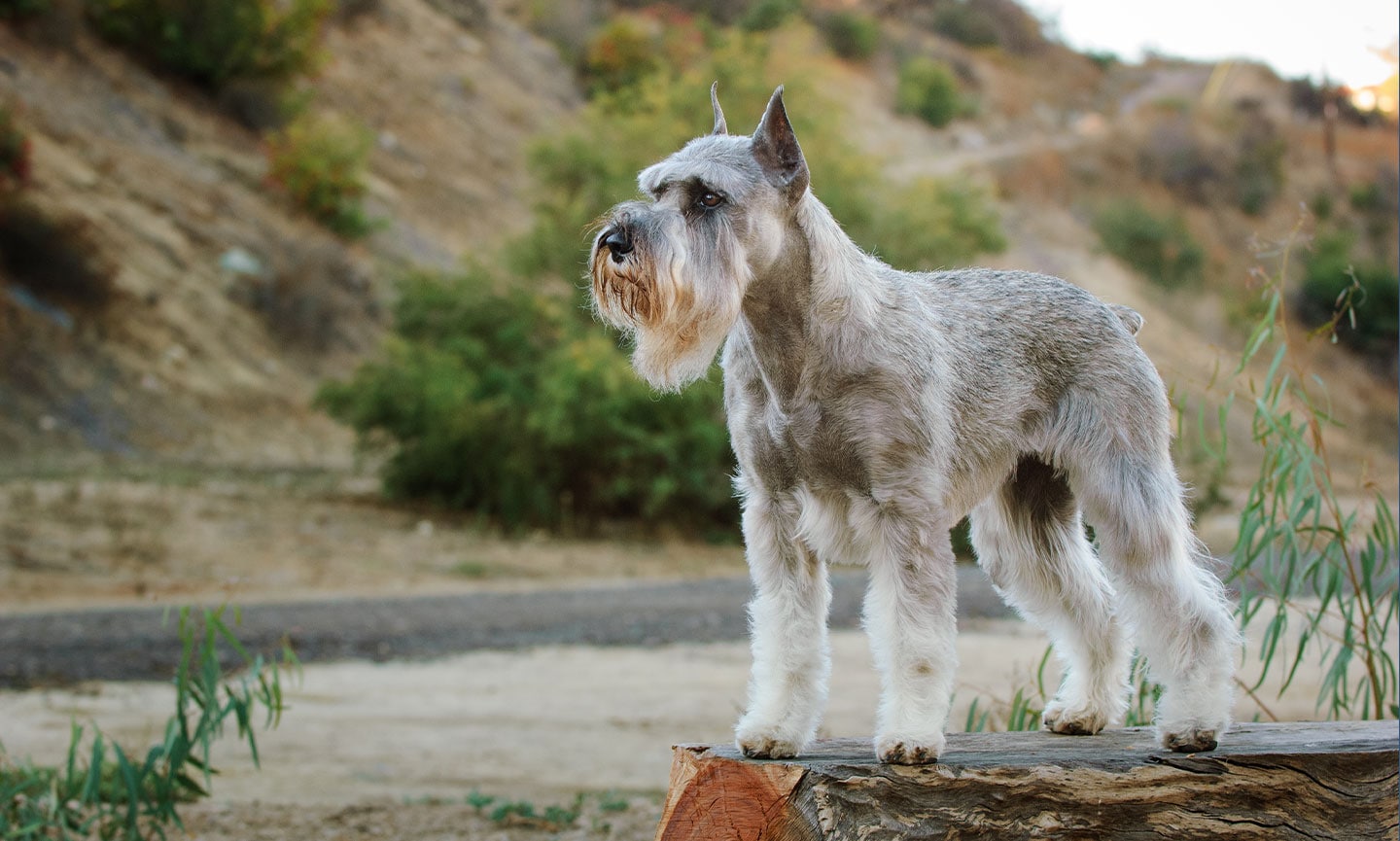
The Schnauzer is a popular breed known for its distinctive beard and bushy eyebrows. They come in three sizes: Miniature, Standard, and Giant. Originally bred in Germany, Schnauzers were initially used as working dogs and watchdogs on farms.
Schnauzers are known for their intelligence and loyalty, making them excellent family pets. They are highly trainable and tend to be obedient and eager to please their owners. Their alert nature also makes them good watchdogs.
In terms of appearance, Schnauzers have wiry, double-layered coats that shed minimally, making them a suitable choice for people with allergies. Regular grooming is necessary to prevent matting and keep their coats looking their best.
Overall, Schnauzers are energetic, playful, and affectionate companions that thrive on human companionship.
Hypoallergenic qualities of Schnauzer dogs
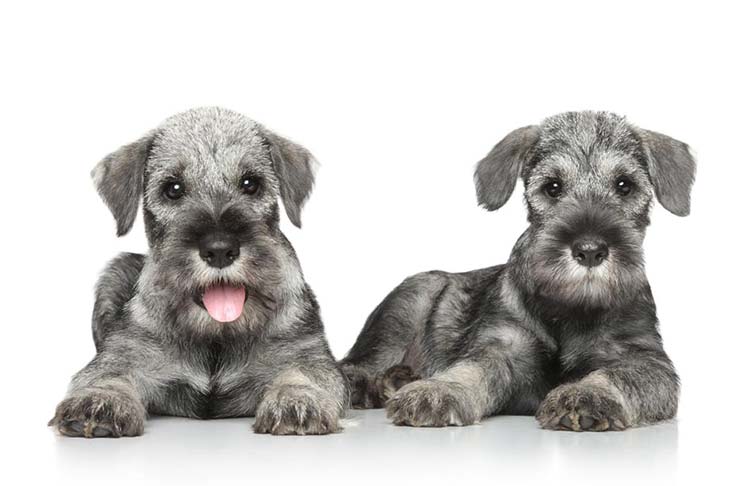
Schnauzer dogs are known for their hypoallergenic qualities, making them a great choice for individuals with allergies. Their double coat, consisting of a dense, wiry topcoat and a soft undercoat, helps to minimize shedding and reduce the amount of allergens released into the air. This means that people who are prone to allergies can enjoy the company of a Schnauzer without suffering from sneezing or itching. Additionally, Schnauzers have minimal dander, which is a common trigger for allergies. Their low dander levels make them a suitable option for those who are sensitive to pet allergens. With their hypoallergenic qualities, Schnauzers offer a wonderful opportunity for individuals to experience the joy and companionship of owning a dog, without the worry of allergic reactions.
Conclusion
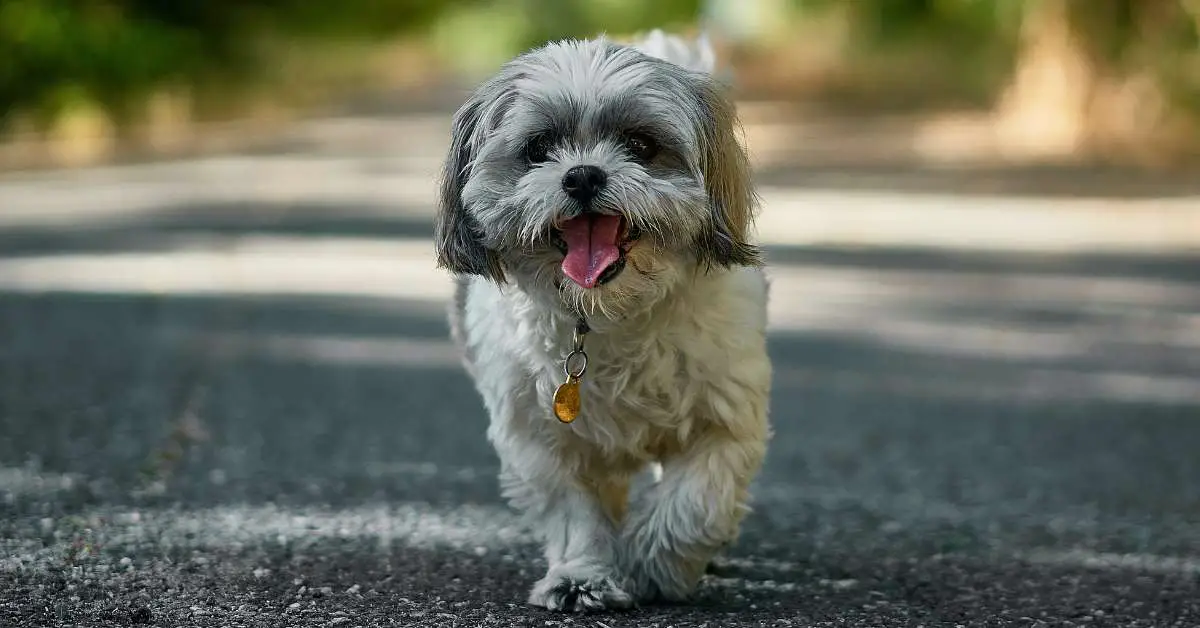
Conclusion:
In conclusion, exploring different hypoallergenic dog breeds can provide a great solution for individuals with allergies who still want to experience the joy and companionship of owning a dog. By understanding the characteristics and hypoallergenic qualities of various breeds, prospective dog owners can make an informed decision that suits their lifestyle and allergy sensitivities.
Poodles, Bichon Frises, Maltese, Shih Tzus, Yorkshire Terriers, Portuguese Water Dogs, and Schnauzers are just a few of the hypoallergenic options available. These breeds offer unique coat textures and characteristics that reduce the amount of allergens, such as dander, that are released into the environment.
It is important for individuals to consider their specific allergies and the maintenance required for each breed when choosing a hypoallergenic dog. Regular grooming, cleaning, and minimizing exposure to allergens can help alleviate symptoms.
Ultimately, owning a hypoallergenic dog can be a great way to enjoy the benefits of canine companionship while minimizing allergy-related issues.
Choosing the right hypoallergenic dog breed for you
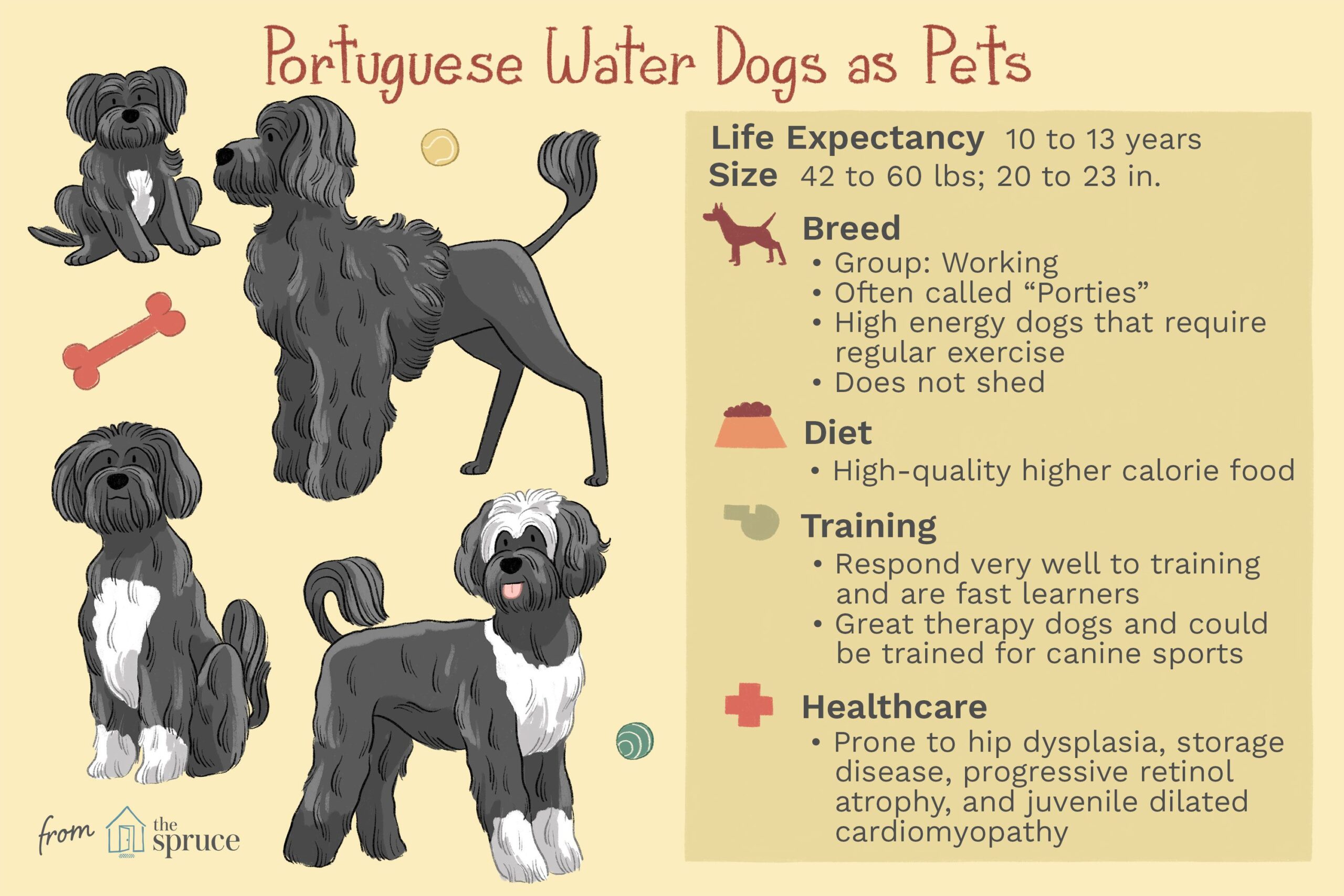
When it comes to choosing the right hypoallergenic dog breed for you, there are a few factors to consider. First and foremost, think about your lifestyle and living situation. Do you have enough space for a larger breed like a Poodle or Portuguese Water Dog, or would a smaller breed like a Maltese or Yorkshire Terrier be a better fit?
Additionally, consider the amount of time and energy you can devote to grooming. Some hypoallergenic breeds, like the Schnauzer, require regular professional grooming to maintain their coat's hypoallergenic qualities. If you prefer a lower-maintenance option, a Bichon Frise or Shih Tzu may be more suitable.
Lastly, don't forget to spend time with the breed before making a decision. Every dog has a unique personality, so make sure you choose a hypoallergenic breed that aligns with your lifestyle and preferences.
Considerations and final thoughts on owning a hypoallergenic dog

When considering owning a hypoallergenic dog, there are a few important factors to keep in mind. First and foremost, it is crucial to understand that while hypoallergenic dog breeds may produce fewer allergens, no dog breed is completely allergen-free. It is still possible for individuals with severe allergies to have reactions to hypoallergenic dogs.
Another consideration to make is the grooming needs of these breeds. Hypoallergenic dogs typically require regular grooming to maintain their hypoallergenic qualities. This includes regular brushing and occasional visits to professional groomers for haircuts and maintenance.
Additionally, it is essential to consider the level of energy and exercise needs of the specific hypoallergenic breed you choose. Some breeds may require more physical activity and mental stimulation than others.
Ultimately, owning a hypoallergenic dog can be a wonderful experience for individuals with allergies. However, it is vital to do thorough research, consult with professionals, and consider these factors before making a decision.




0 Comments